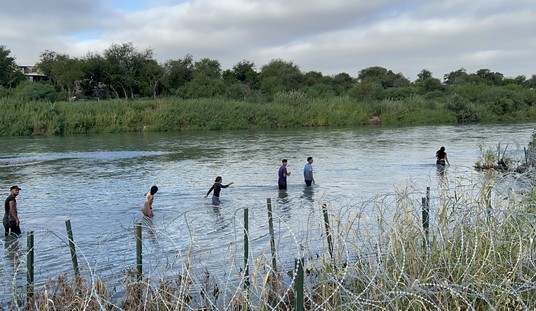
The post-hurricane crisis in Puerto Rico is an ongoing concern. While the press is diligently giving one contrarian mayor all of the airtime the rest of the island’s leaders, and hordes of federal agency workers, are working at fixing an untenable situation.
Relief efforts have been hampered by an infrastructure that has been rendered, an electrical grid being completely taken offline, and ports being overstuffed with relief supplies that cannot be delivered either due to unopened roads or recalcitrant truckers. The disaster left in the wake of Maria has made all the worse due to a nation that has been handicapped by an economic quagmire, and the conditions creating such.
What this is certain to be provoked is a broadening of the stream of residents who have been moving to the US mainland for years. The country has been in a debt crisis and this past May the nation actually filed for bankruptcy. It sits on over $120 Billion in debt and pension obligations. The governor tried enforcing some austerity conditions on various government worker and union groups — which explains the truckers acting like teamster cliches during a humanitarian emergency.
The Puerto Rican flight to the mainland has been in force for years now. Since 2010 the island has seen steady erosion of its population, and 2012 saw more native Puerto Ricans now living in the states than on the island itself — 4.9 million, versus 3.5 million. As US citizens their ability to become voters in their new home is a smooth process and those new arrivals are viewed at as a new explosive voting block, with most assuming they are predominantly Democrat leaning. This is something our objective and unbiased media have begun to look at expectantly.
Ppl of 🇵🇷, if you flee devastation & come to mainland, hope you settle in a swing state- FL, PA, OH… Register to vote & don't forget this! https://t.co/bkKYlZOKg1
— Ana Navarro-Cárdenas (@ananavarro) October 1, 2017
For a generation or so New York had been the primary landing for these new arrivals. This has shifted however in the last decade, as Florida has become the preferred relocation target. The population of transplanted Puerto Ricans in Florida stands over 1.1million, with a surge expected to be on the way. Many are predicting this will transform the Sunshine State from “swing” status to one that is dependably Blue, but there are signs this is not assured.
The current influx has been looked at expectantly by Dems and yet the results have not been as automatic as expected. Many have been looking for the Florida legislature to shift significantly, however two factors seemingly are in play. The first is many of the transplants are settling in the Orlando region, a heavy Puerto Rican enclave. However that is recognized as a Democrat controlled region. The counties of Orange (Orlando), and Osceola are deeply blue already.

The other aspect of the Puerto Rican voting block is that a significant percentage of those who come to the states end up registering as independents. Many factors of this may exist but coming from an island that has been traditionally Democrat, and enduring drastic and lasting hardship, may contribute to hesitancy to continue down the same path. During the general election the hispanic vote was looked at as tilting the field strongly in favor of Hillary. That advantage failed to materialize.

The result of this reality is that both parties are now viewing the surge of Boricuas as an opportunity. The Democrats see the arrivals as a voting windfall, while the GOP see them as a potential new opportunity. Marco Rubio has been an energetic voice from Republicans. The only primary candidate to visit the island (Puerto Rico has no Presidential vote, but does participate in the primaries) Rubio was one of the first politicians to visit just after the storm. He has been a steadfast vocal proponent of relief efforts on the island.
Joining him in calls for help, and frequently working together, has been Senator Bill Nelson (D). Nelson has spoken frequently to Puerto Rican groups in the past weeks to lend a voice to the rescue. Governor Rick Scott visited the blighted island to help with relief, as well as recently declaring a state of emergency, in order to obtain aid for the expected influx of transplants to the state. That Scott and Nelson will be expected to compete for the Senate seat is no small matter in the decisions made here.
This growing influence means that many politicians are regarding the Puerto Rican relief effort with an eye on the long term. How much to declare and promote, and how close or how much distance to keep from President Trump, all becomes a factor on future elections. The media portrayal of the efforts and the desire to scorch Trump each step of the way might be more than scoring points against a reviled President; it is also an attempt to usher these new voters into the “proper” political party position.














Join the conversation as a VIP Member